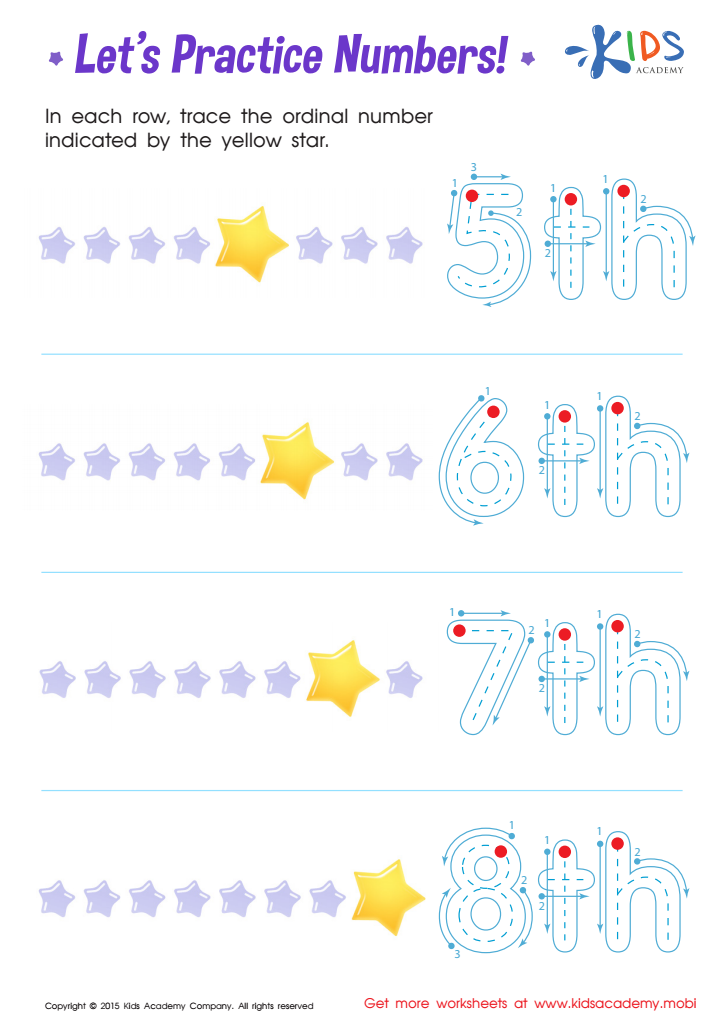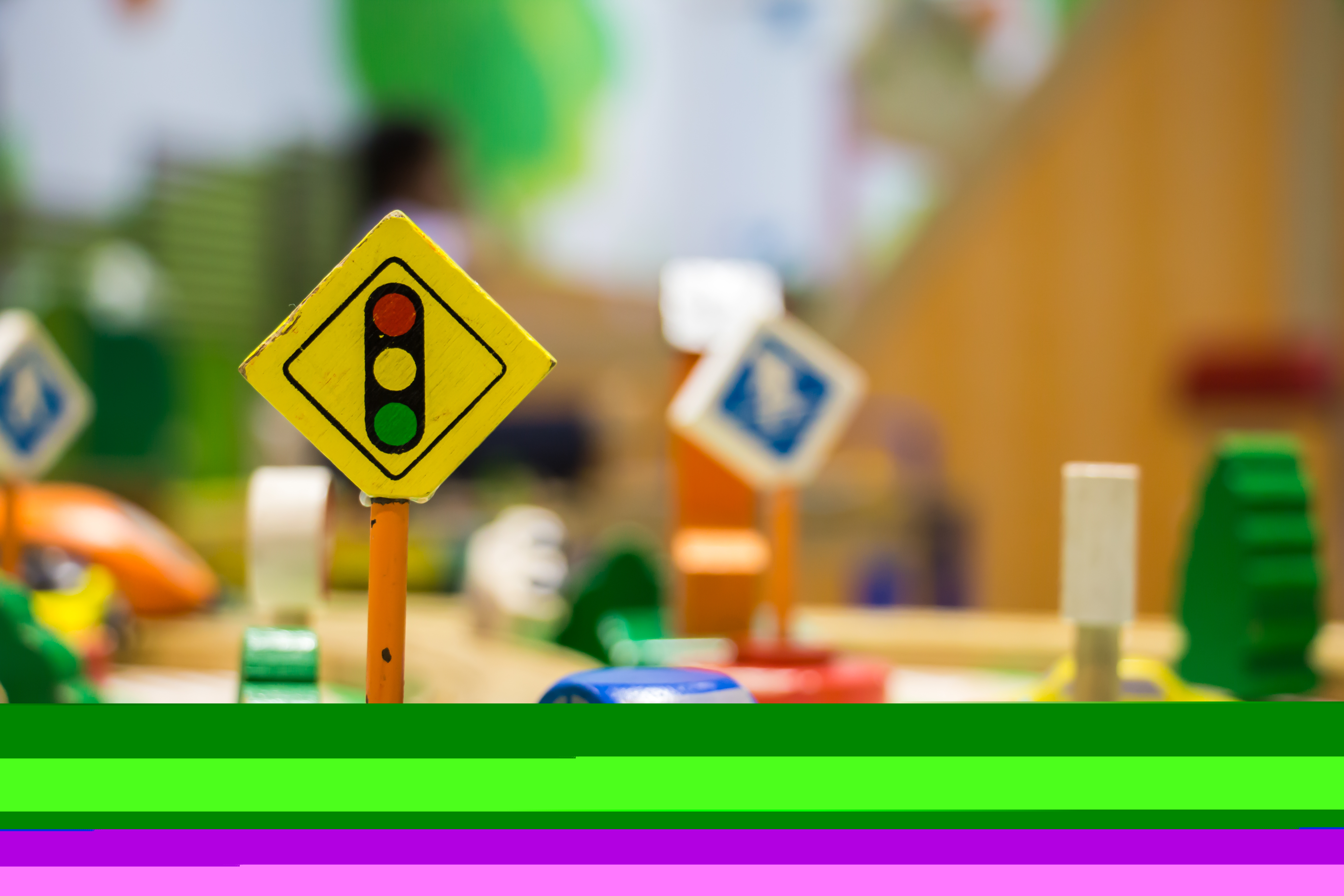Normal Tracing Numbers worksheets activities for Ages 3-8
18 filtered results
-
From - To
Explore our engaging "Normal Tracing Numbers Worksheets" designed for children aged 3-8. These printable activities are perfect for helping young learners develop essential fine motor skills and number recognition. Each worksheet provides a fun and interactive way for kids to practice tracing numbers, enhancing their hand-eye coordination while reinforcing their understanding of math fundamentals. With a variety of tracing exercises, your child will enjoy mastering numbers in a playful, educational environment. Download our worksheets today and support your child's early arithmetic journey, setting a strong foundation for future learning and success. Start tracing and discovering the joy of numbers!
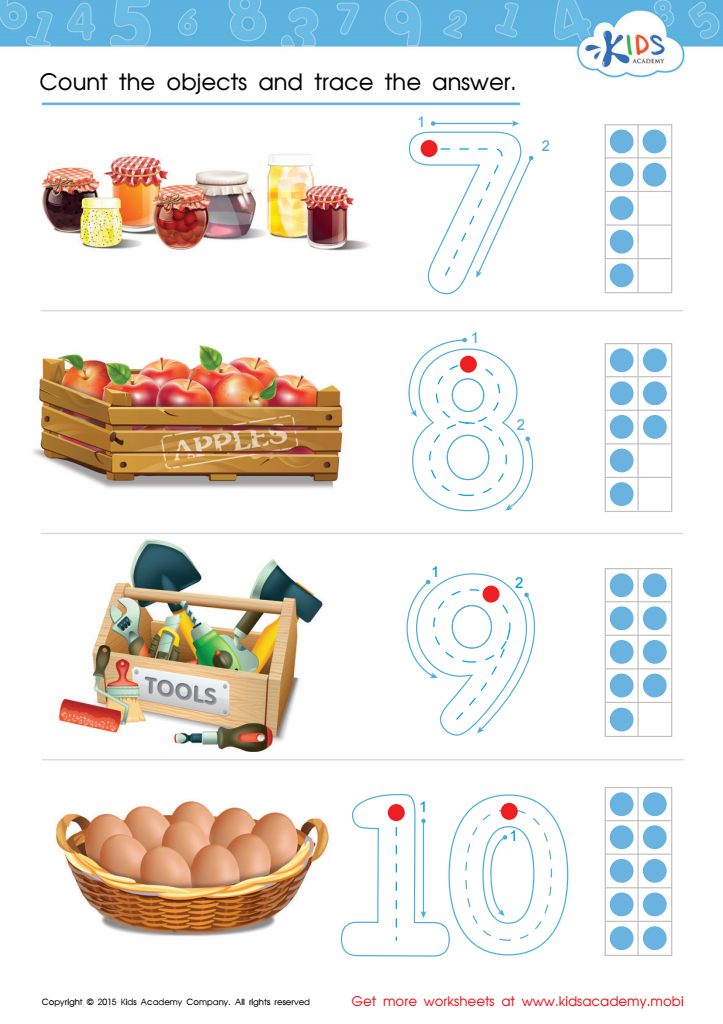

Count and Trace 7 – 10 Worksheet
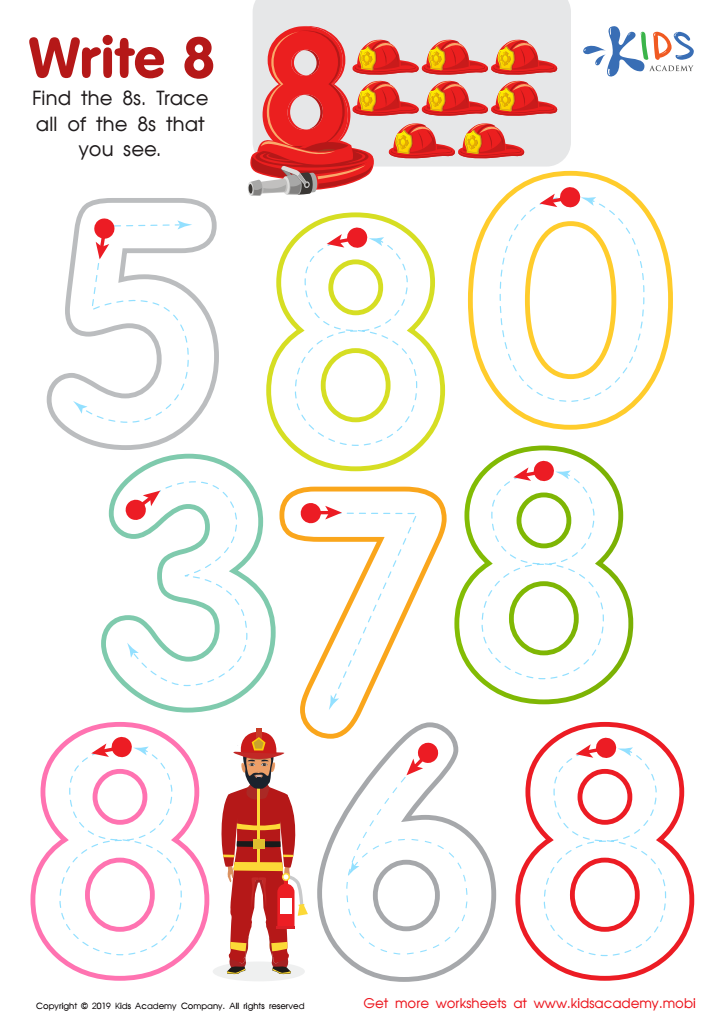

Write 8 Worksheet
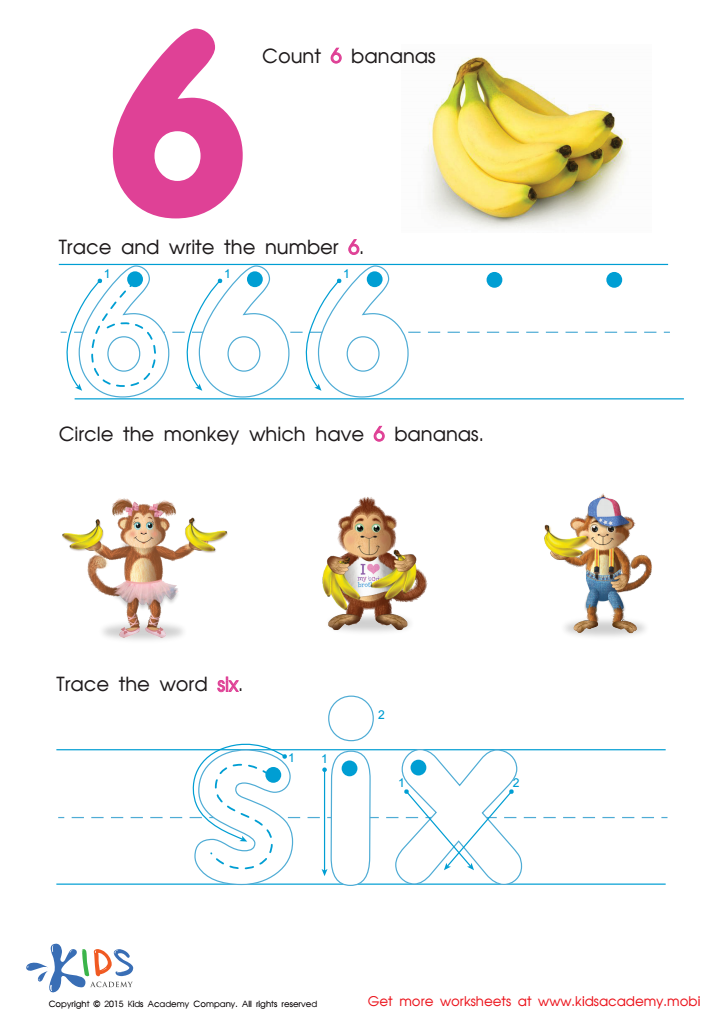

Tracing And Writing Number 6 Worksheet
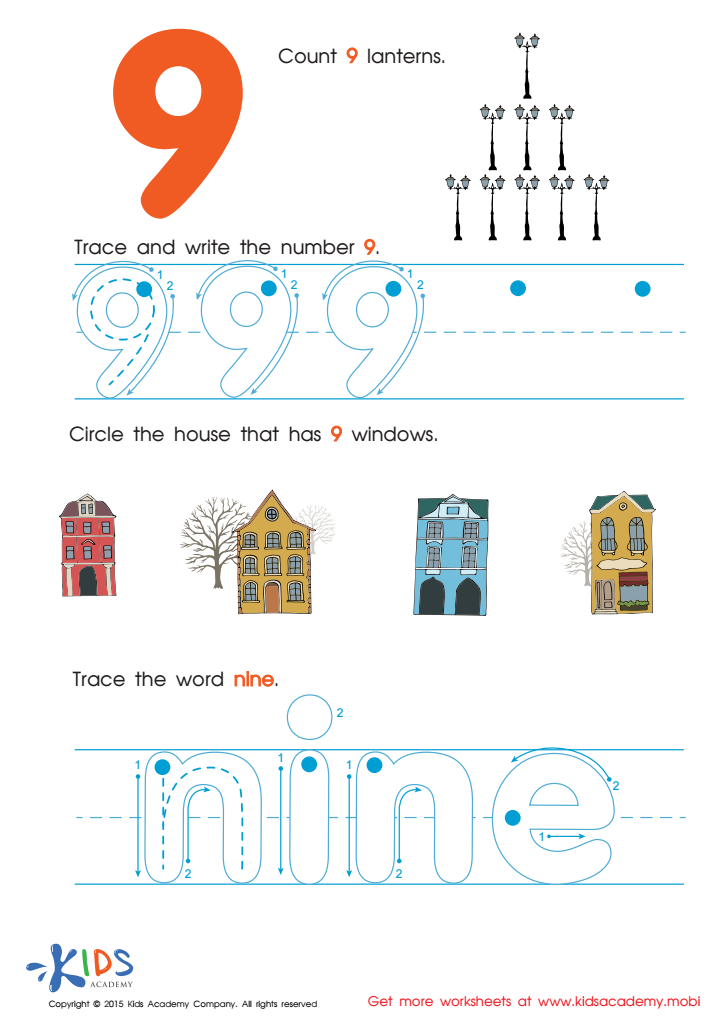

Tracing And Learning to Write Number 9 Worksheet
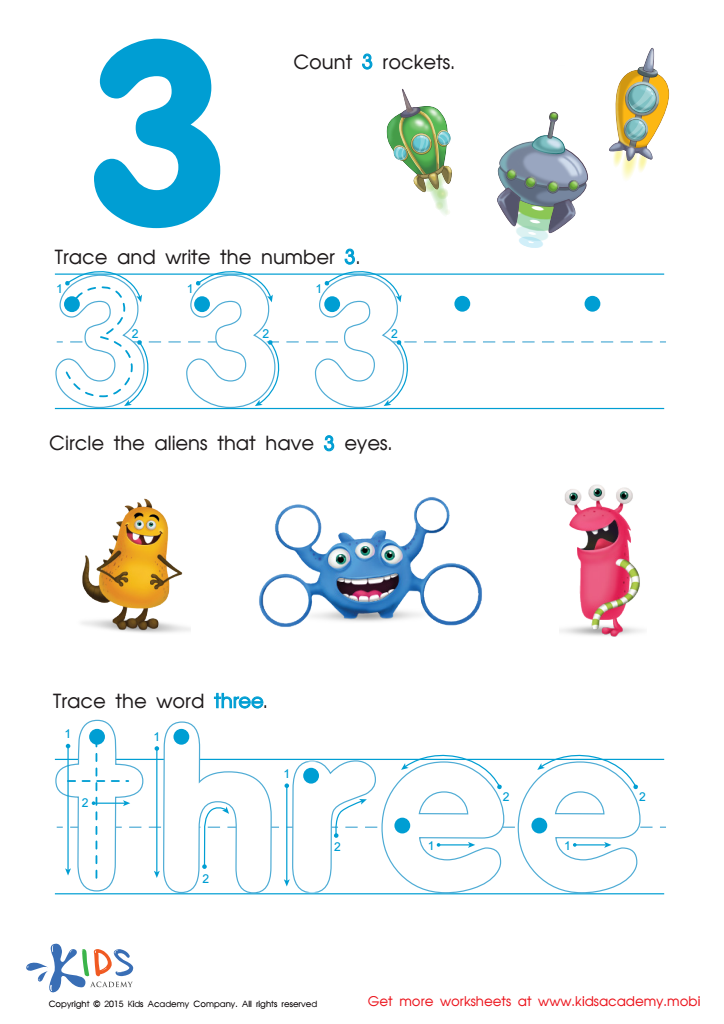

Learning Number Three Worksheet
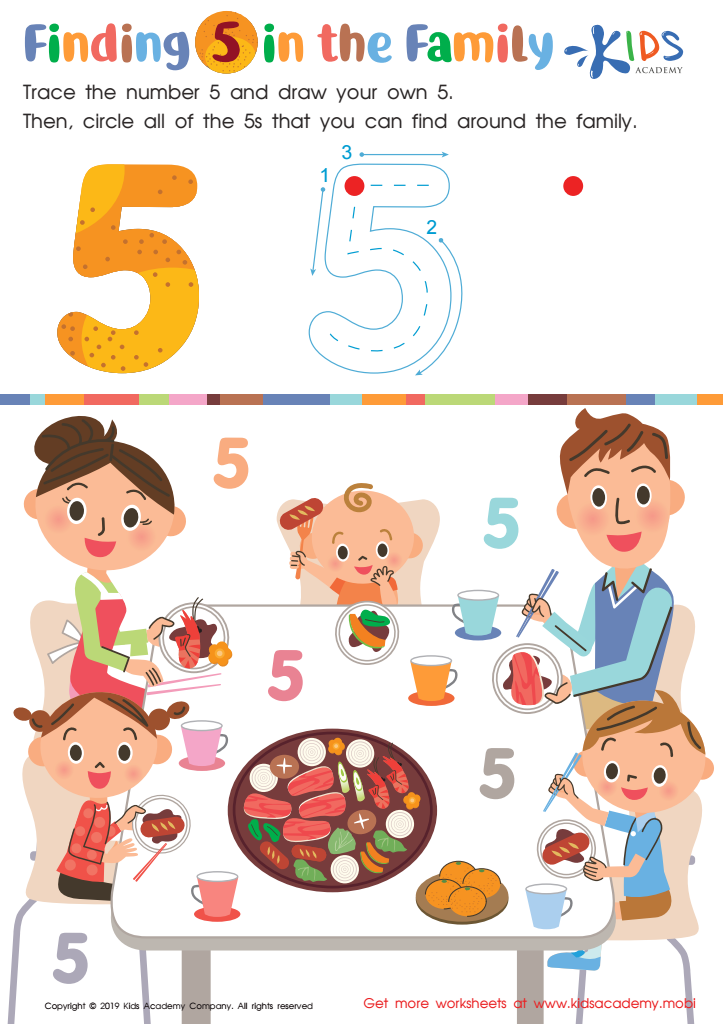

Finding 5 in the Family Worksheet
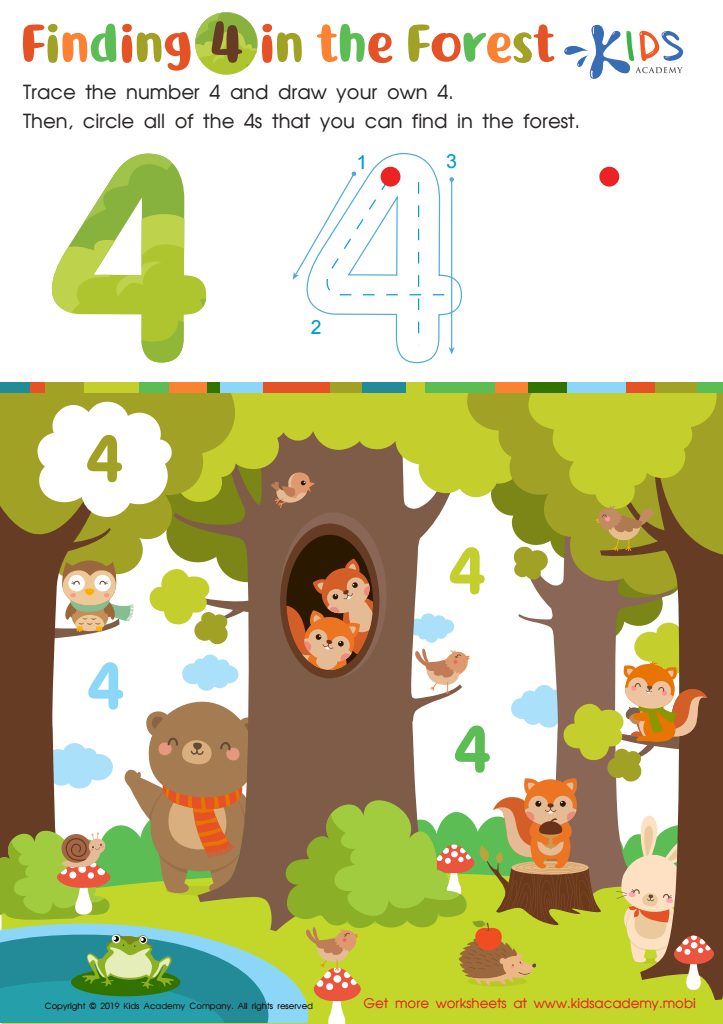

Finding 4 in the Forest Worksheet
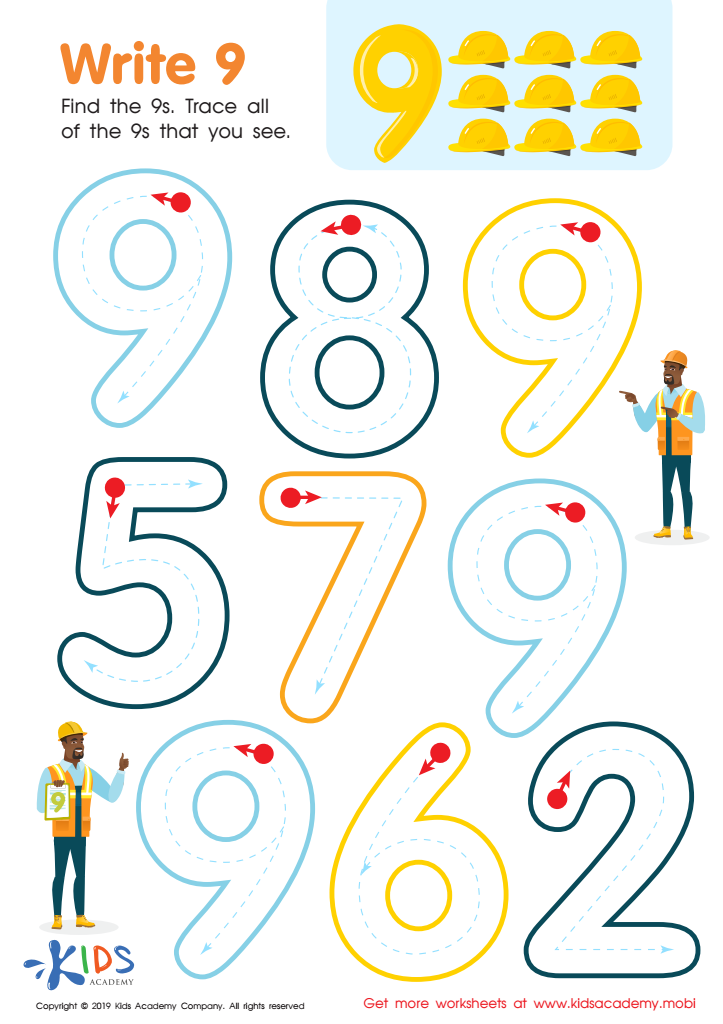

Write 9 Worksheet
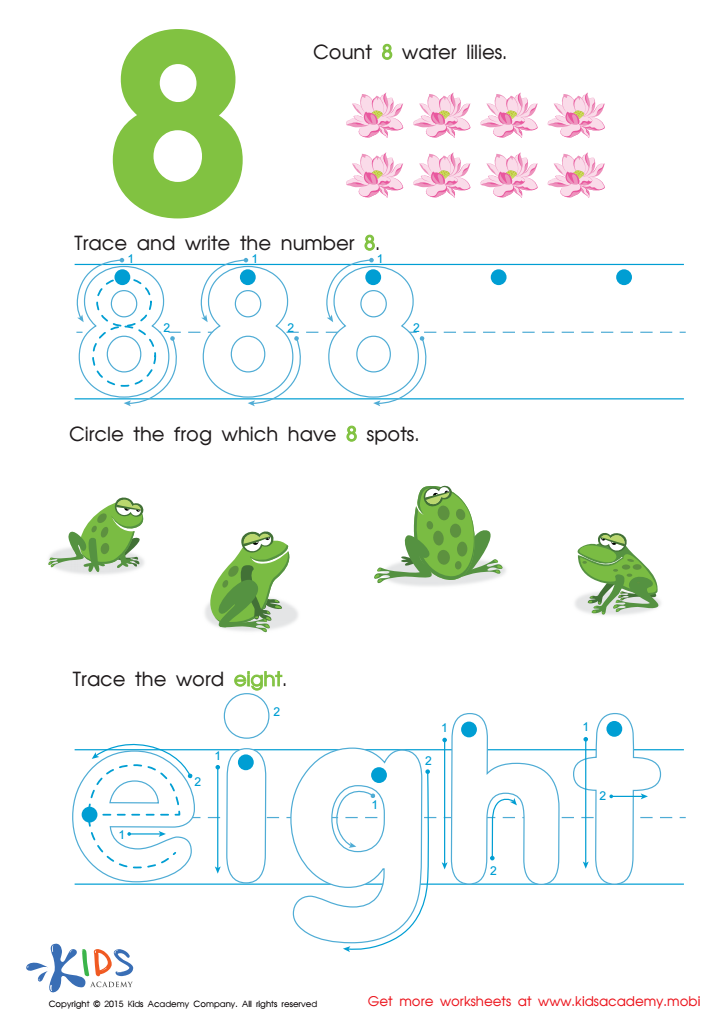

Learn Number 8 Easily Worksheet
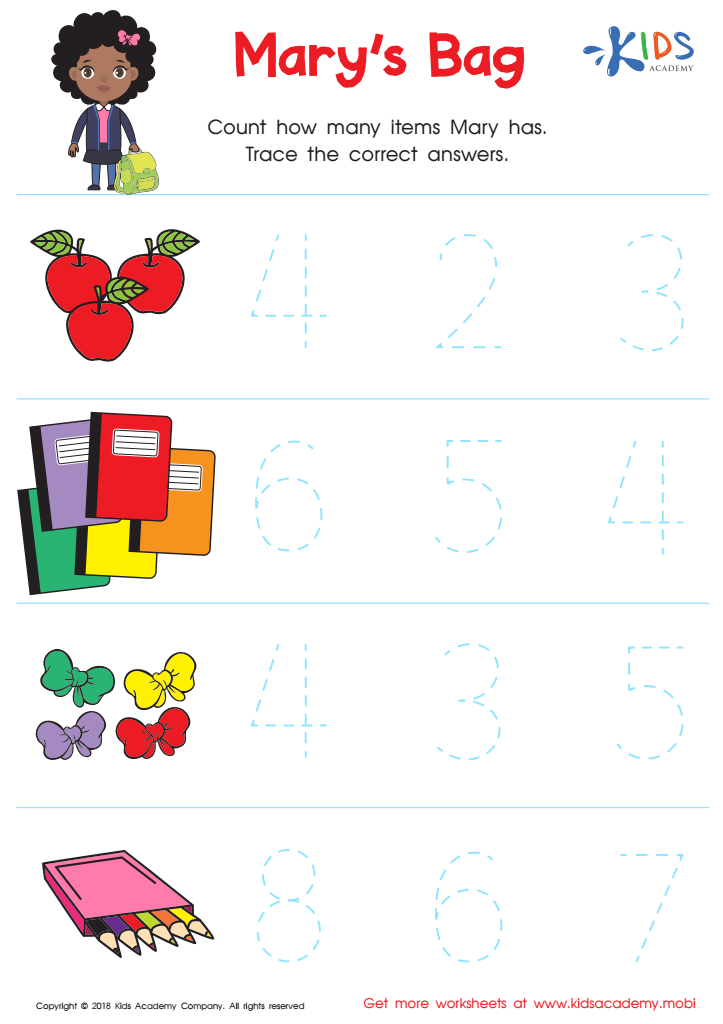

Kindergarten Number Tracing: Mary's Bag Worksheet
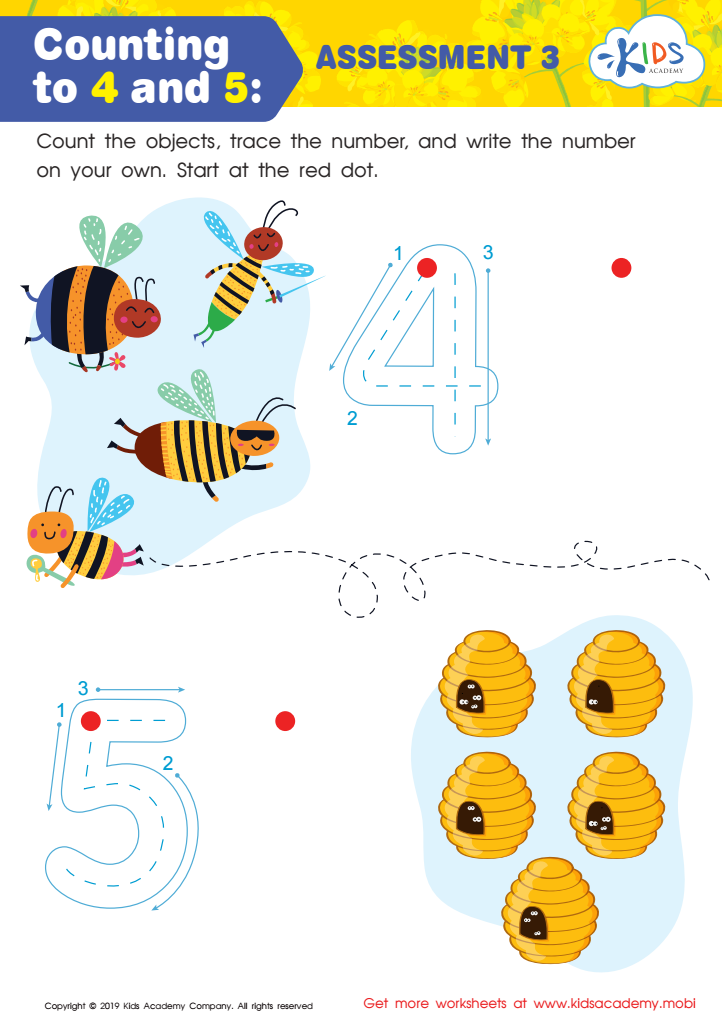

Counting to 4 and 5: Assessment 3 Worksheet
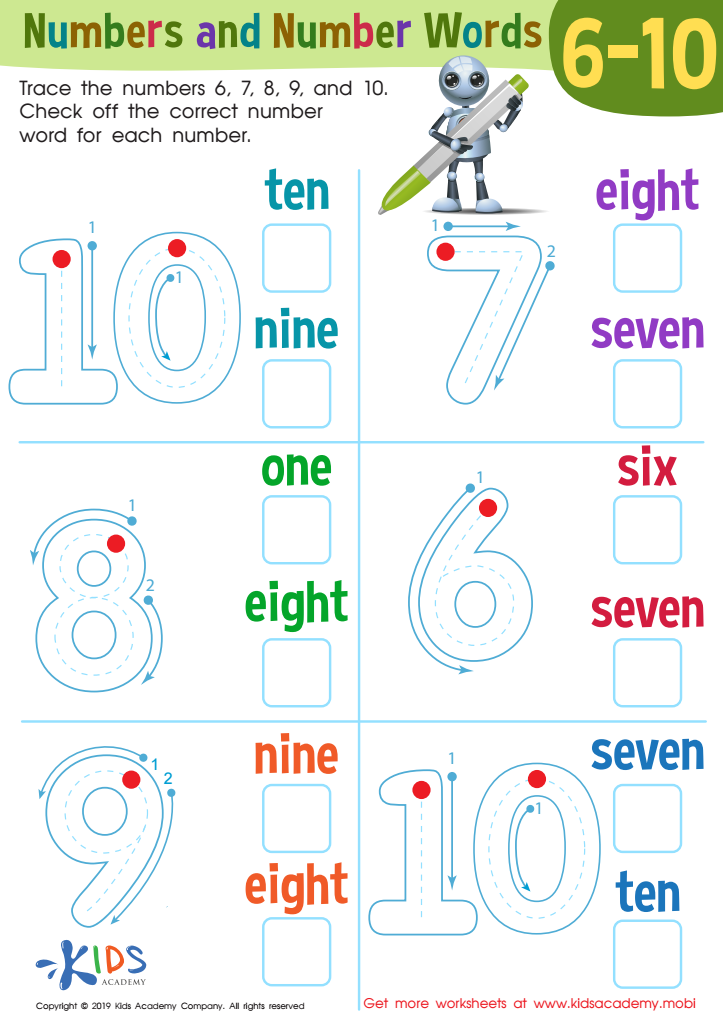

Numbers and Number Words 6–1 Worksheet
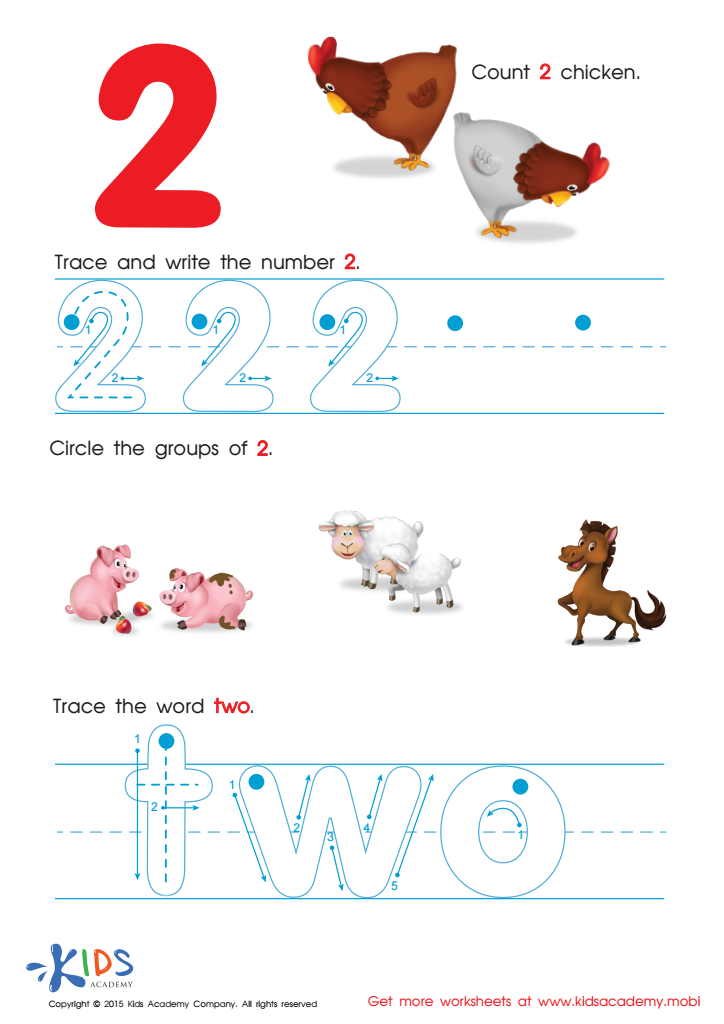

Learn to Write the Number 2 Worksheet
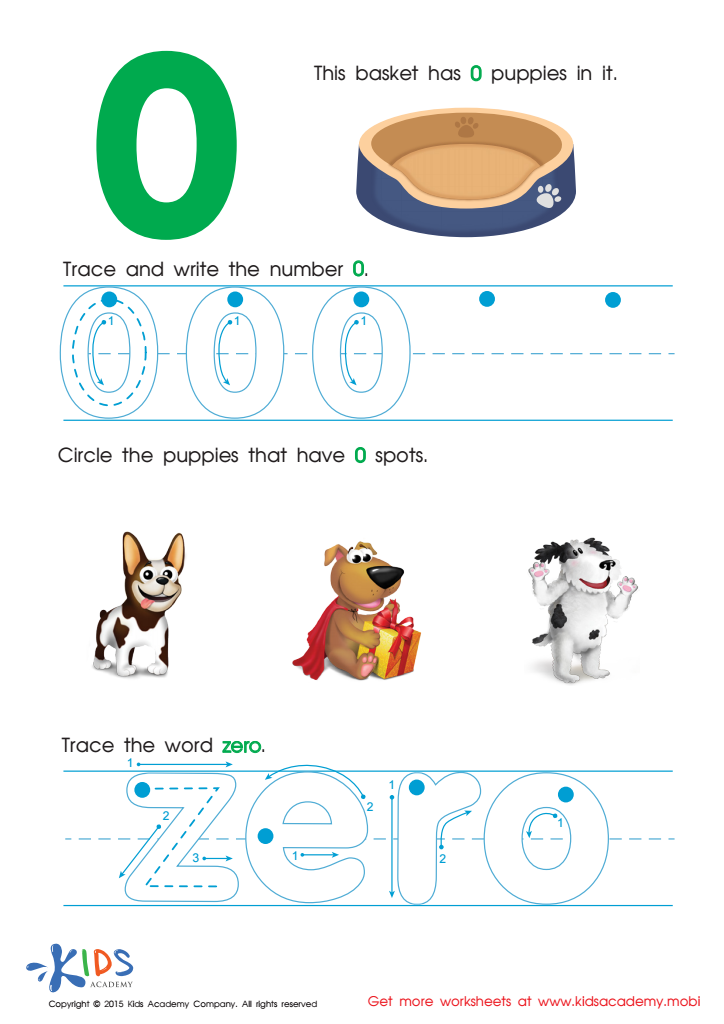

Trace And Write Number 0 Worksheet
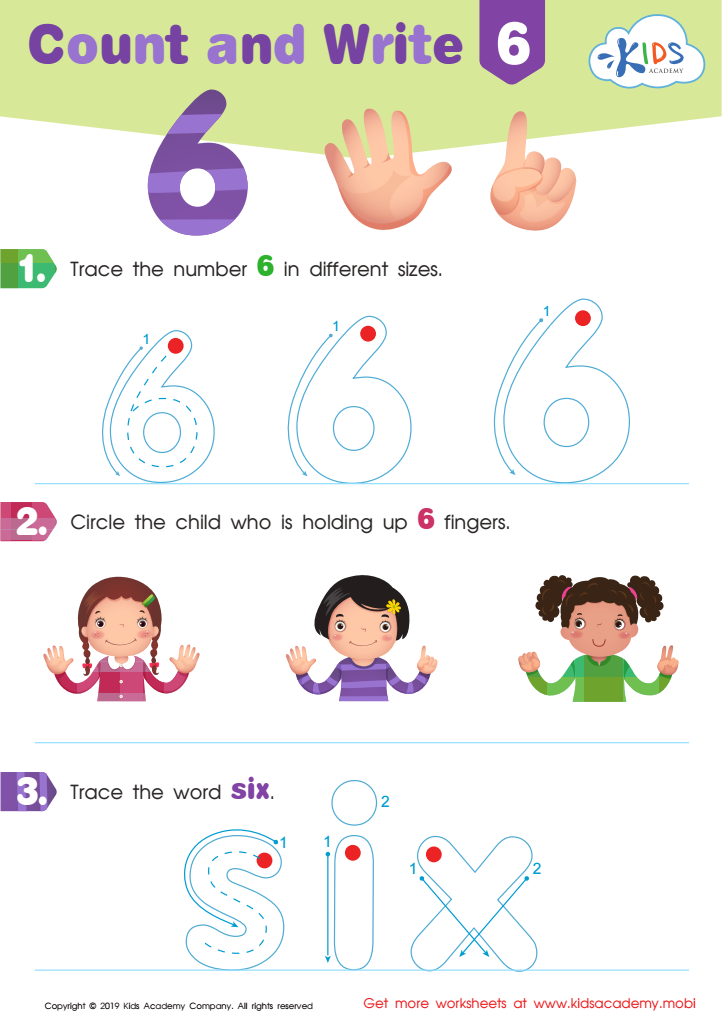

Count and Write 6 Worksheet
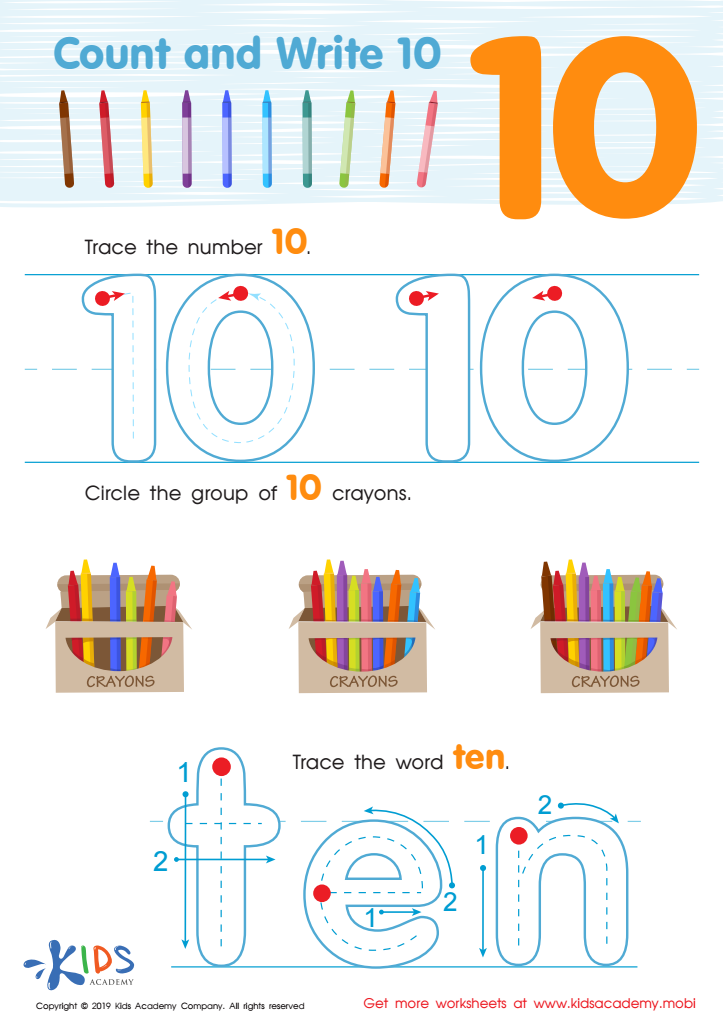

Count and Write 10 Worksheet
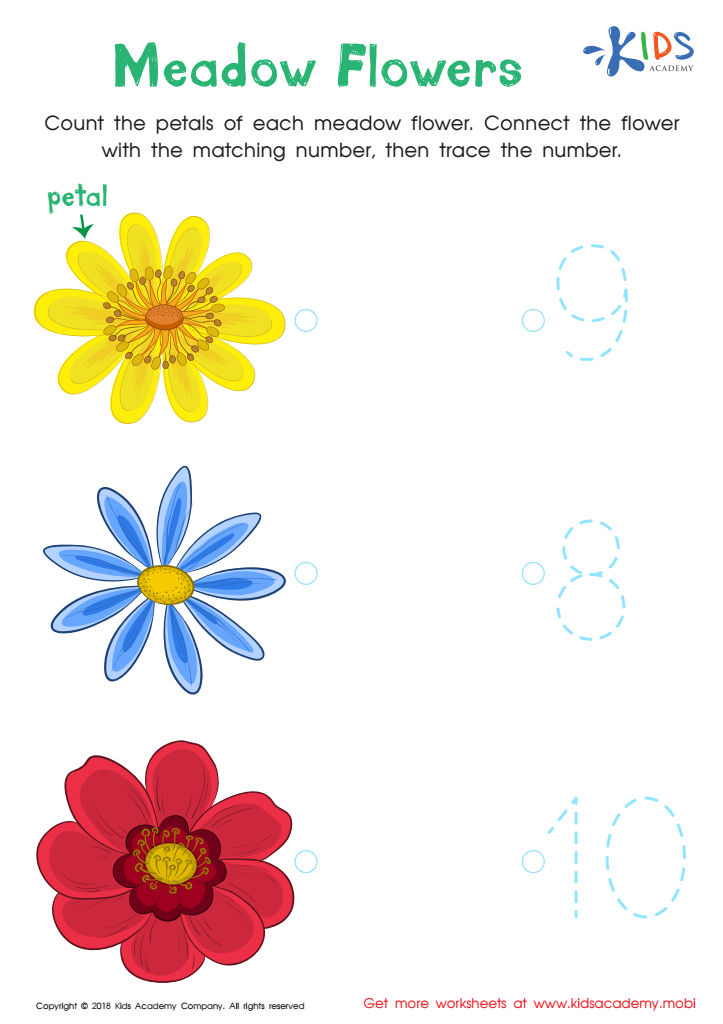

Kindergarten Number Tracing: Medow Flowers Worksheet
Normal Tracing Numbers activities for children aged 3-8 are integral to their early educational development. These activities help young learners establish a foundational understanding of numbers and enhance their fine motor skills through repeated practice. Tracing numbers not only provides an engaging and enjoyable learning experience but also introduces important concepts such as quantity, order, and number recognition.
For parents and teachers, incorporating tracing activities can significantly support literacy and numeracy development, preparing children for future learning. Desired outcomes include improved handwriting, enhanced concentration, and increased confidence in math skills. As children trace, they also develop hand-eye coordination, a crucial skill they will use in various daily tasks.
Moreover, Normal Tracing Numbers activities promote cognitive growth by encouraging problem-solving and critical thinking as children learn to recognize patterns and sequences. This type of active learning fosters an environment where exploration and creativity flourish.
Finally, these activities can facilitate bonding between parents and children or teachers and students. These collaborative learning experiences not only strengthen foundational skills but also create a positive association with learning, nurturing a lifelong love for education. Therefore, parents and teachers should prioritize these activities to ensure holistic development for children aged 3-8.
 Assign to My Students
Assign to My Students
